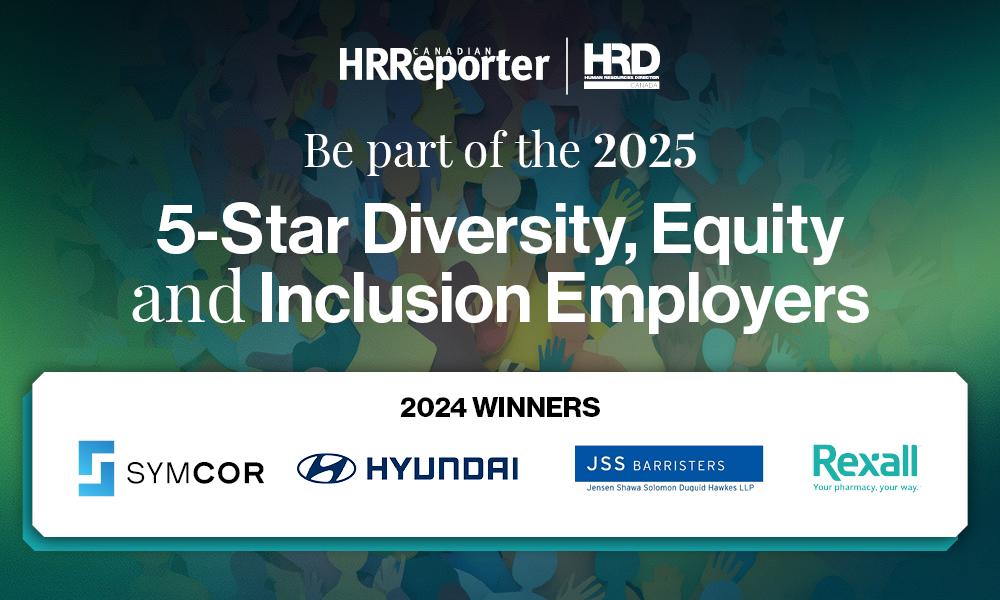Survey finds interactions with human resources help boost employee attraction, retention

Amid the ongoing labour shortage, HR should be catering to the needs of employees more than ever, according to a report from ADP Research Institute.
Why? Employees who use five services from HR are 11 times more likely to say HR is value-promoting than those who don’t use any services.
Also, employees are 7.4 times more likely to say HR is value-promoting when they experience at least seven interactions with HR compared to no interactions, found the survey of 32,000 respondents in 25 countries.
“The most compelling discovery right off the gate is that those people who see HR as value promoting are far more likely to advocate the company as a place to work to friends and family,” says Marcus Buckingham, head of people and performance research at ADP Research Institute , in talking with Canadian HR Reporter.
“When you have a really, really great experience of just HR, you are far more likely to advocate the company to friends and family.”
Attracting, retaining employees
Among workers who are “talent brand promoters”, 39 per cent see HR as value-promoting. In contrast, only three per cent of “talent brand detractors” can say the same. Employees who are value-promoting are 3.7 times more likely to have no intent to leave compared to those who are value-detracting, according to ADP Research Institute.
“So for a function like HR that is always looking for measurable proof that what it is doing is not just reducing costs but actually is increasing value, it’s a hugely significant finding. Because at the moment, every single CEO is fixated on the company’s talent brand. And so the idea that, independent of anything else, the experience of HR drives that talent brand is huge for the entire function,” says Buckingham.
“If you have a really positive HR experience, you’re much more likely to be advocating the company as a place to work. That’s talent brand.”
Unequivocally, the HR function is critical to both finding or attracting the best talent and keeping the best talent, he says.
“If you really want to attract people and keep the people that you have, the HR function is a vital weapon in your arsenal to do that. And the key thing for HR is first of all to own that power, understand it, and then figure out where you should focus.”
More than four in five (84 per cent of) Canadian companies expect to have hiring difficulties over the next year, according to a previous report.
Is HR changing?
The ongoing health crisis has changed people’s way of life. And 43 per cent of HR professionals feel the role of HR has changed because of COVID-19, according to a previous survey from ADP Canada and Maru/Blu.
“It’s always the same, if you look at the five experiences that… people want from HR,” he says, citing feeling safe psychologically and physically, feeling understood as human beings, helped to grow and get better and trusting HR, says Buckingham.

Marcus Buckingham
“That was true pre-pandemic, it was true during the pandemic – those needs haven’t changed.”
Despite the huge role that human resources has played with the pandemic, the C-suite is not entirely convinced the changes are permanent ― or more strategic, according to a survey by Sage, provider of cloud management business solutions.
What needs to change is how HR is keeps in touch with employees. Right now, many companies are moving away from a single point of contact with HR, says Buckingham. However, employees are twice as likely to value their company when they experience this approach, according to the survey.
"You don’t feel yourself as some sectioned being with a bit of insurance here, with health benefits over there, a bit of work status over here, employee relations issue over there – you don’t experience your life like that,” he says.
“[Employees] want someone who knows their name, who knows their family situation, who knows what work they do, who knows what team they’re in. They want someone who can understand them as human beings. Just as we do in healthcare. We don’t want 17 different physicians who all know us for one particular body part. We want someone in the position who knows us as a human. The same is true in HR. And when companies do that right, people feel heard, seen, valued.”




